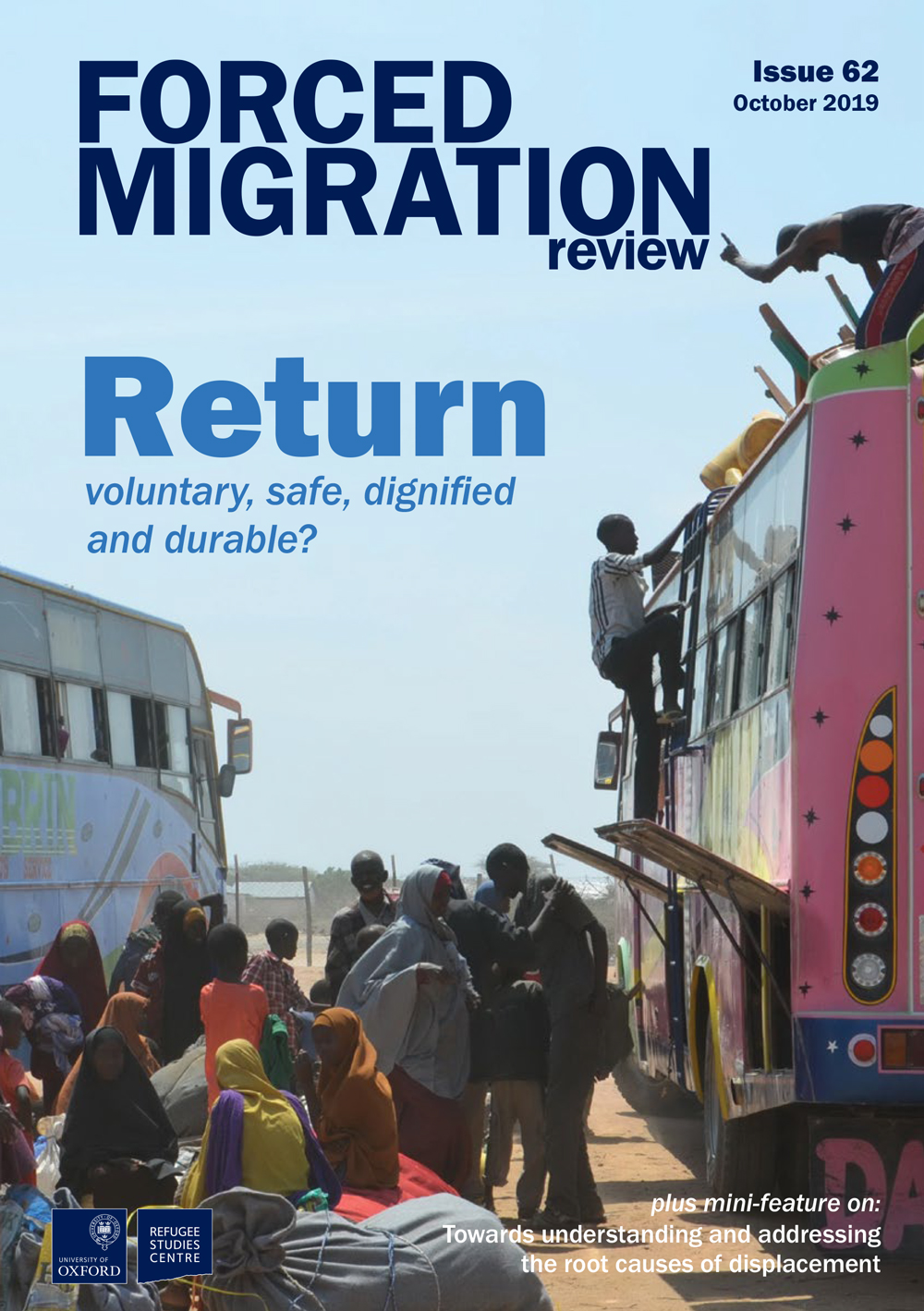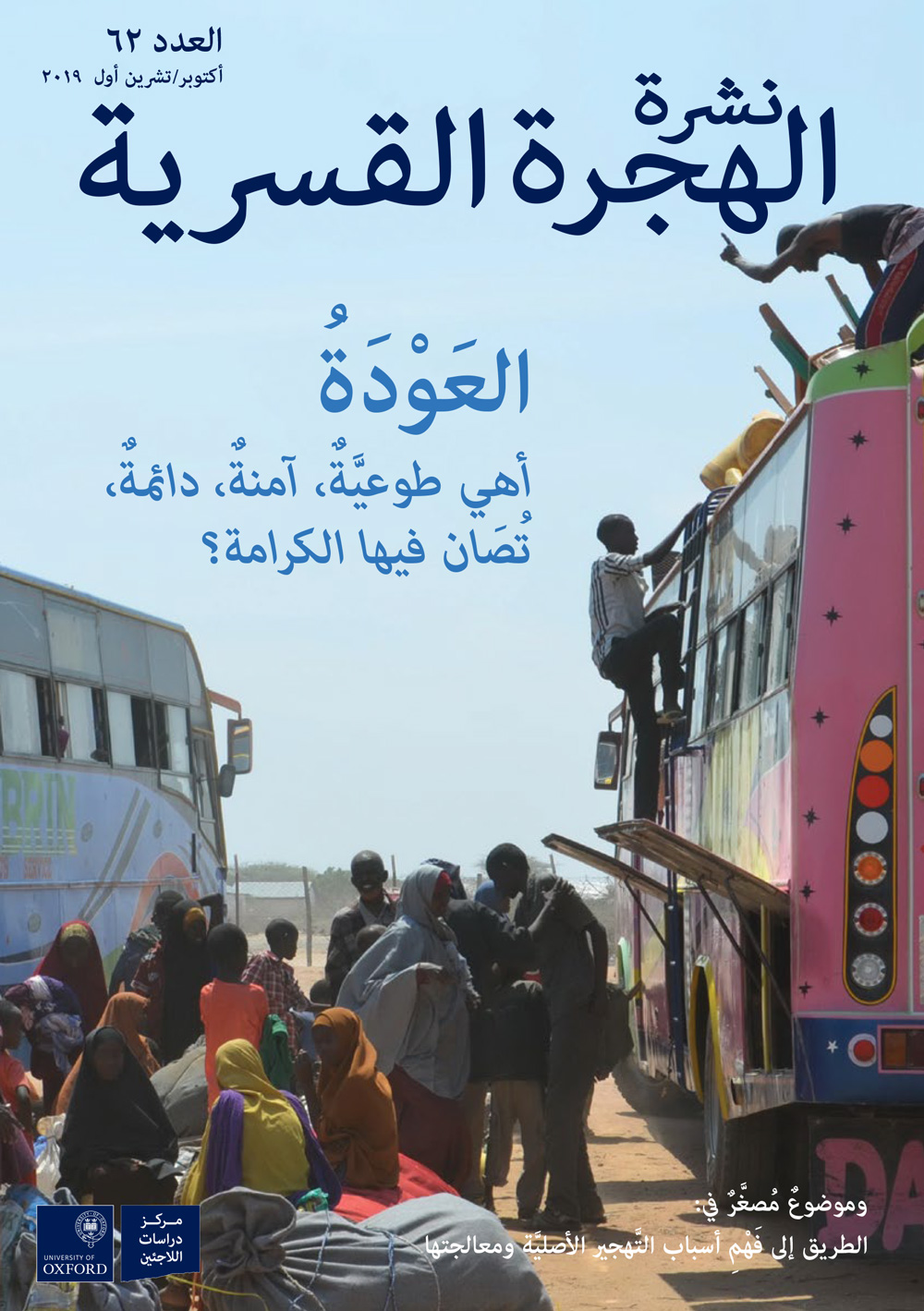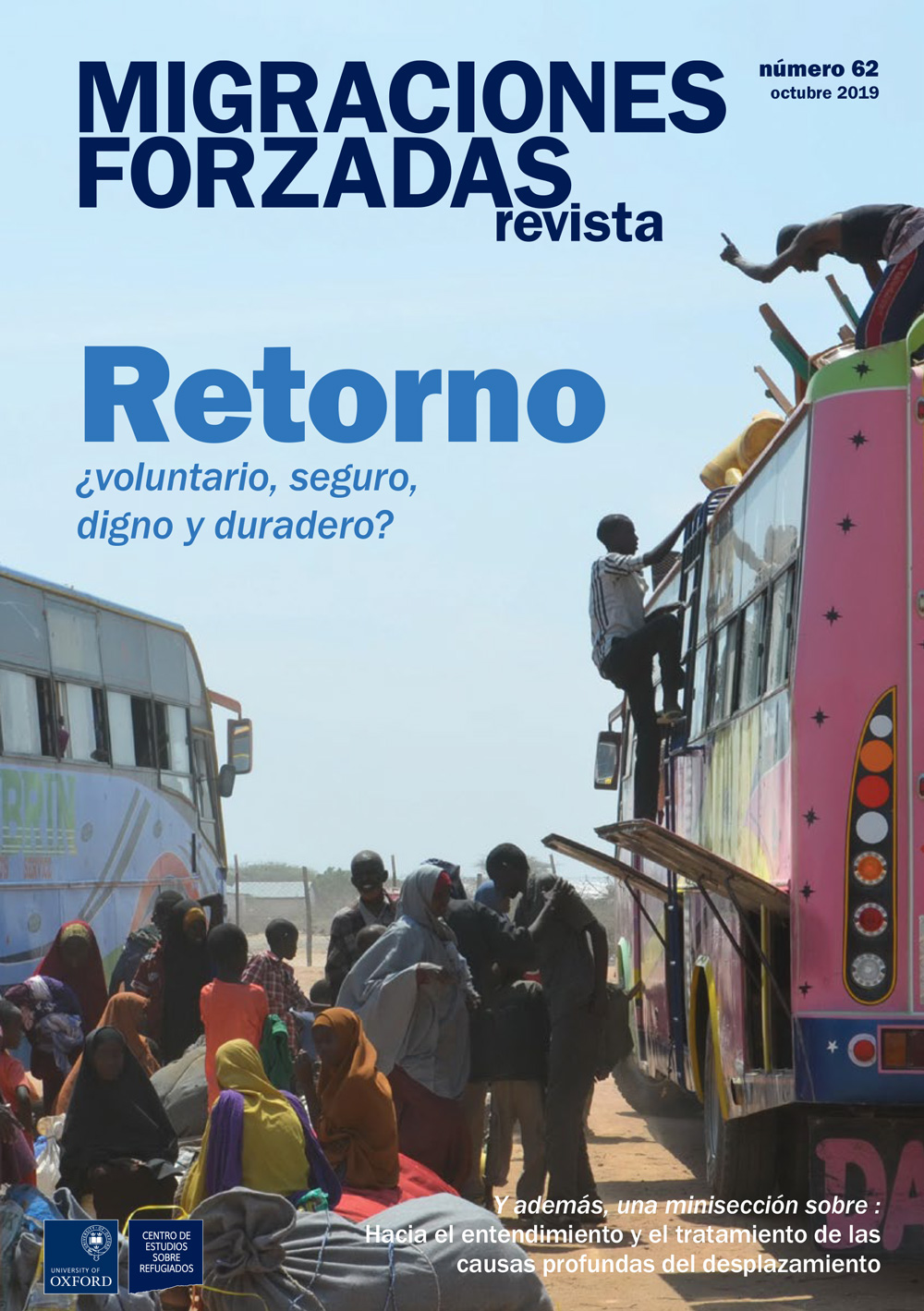From the editors
Voluntary return in safety and with dignity as a durable solution to displacement has long been a core tenet of the international refugee regime. In the 23 articles on Return in this issue of FMR, authors explore various obstacles to…
Opciones emergentes para hallar soluciones duraderas en Darfur
El conflicto de Darfur, que estalló en 2003, dio lugar a la violación generalizada de los derechos humanos y provocó el desplazamiento de un gran número de personas en toda la región. El conflicto ha destruido infraestructuras, debilitado la cohesión…
سياسة العودة من الأردن إلى سورية
يعيش اليومَ في الأردن نحوٌ من مليونٍ و400 ألفِ لاجئٍ سوريٍّ، ثلاثة أرباعٍ منهم، على حسب المنظمات غير الحكومية، ينوون العودة إلى سورية في وقتٍ ما في المستقبل. وينبغي أن تقوم العودة إلى البلد الأصلي على حريَّة القرار، وعلى صدور…
La reintegración política y económica: la clave para el éxito del retorno
Los detonantes del desplazamiento a menudo reflejan una ruptura entre el Estado y sus ciudadanos, lo que significa que el primero es incapaz de cumplir con su obligación de protegerlos ante conflictos violentos. El restablecimiento de esta relación es crucial,…
Los retornos en entornos complejos: el caso de Sudán del Sur
Sudán del Sur lleva desde 2013 inmerso en una guerra civil y ha sido testigo de la inestabilidad, la violencia y los atentados contra los derechos humanos en todo el país. Muchos sursudaneses se han exiliado y actualmente hay cerca…
Prevenir el desplazamiento, abordar las causas profundas y la promesa del Pacto Mundial sobre los Refugiados
En diciembre de 2015, el octavo Diálogo anual del Alto Comisionado sobre los Desafíos de la Protección se centró en el tema de Comprender y abordar las causas profundas del desplazamiento[1]. Los allí reunidos reconocieron la necesidad de que la…
Transferir el poder y cambiar las prácticas para respaldar la construcción de paz dirigida a nivel local
La mayoría de los refugiados del mundo son obligados a abandonar sus hogares a causa de los conflictos y, a menudo, descubren que las dinámicas y las tensiones subyacentes a ellos se trasladan a su nuevo entorno. Más de la…


